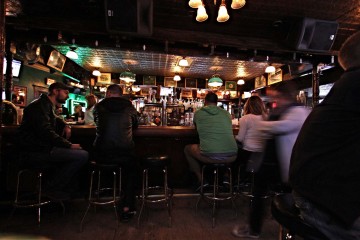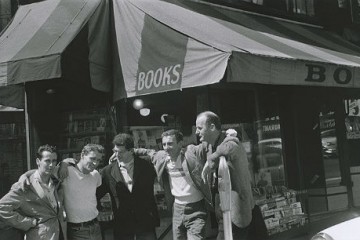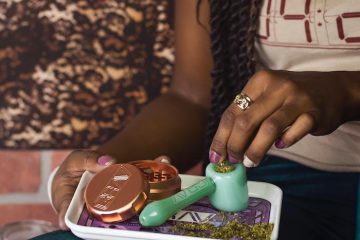How SF County Jail Compares to ‘Orange is the New Black’
‘Orange is the New Black’ has its season premiere this weekend, so people will care about women’s incarceration issues for, oh, the next 48 hours or so. How does the TV show depiction of female incarceration compare to the real-life experience of women inmates here in San Francisco at the SF County Jail? We talked to women who did time at SF County and did inmate visits for others locked up there. Yes, County Jail is different from what you see on Netflix.
But the main similarity is important — that person in jail could be you. All it takes is one mistake, one miscommunication or one cop having a bad day to render your ass behind bars. SF County Jail incarceration is a misfortune that can fall upon anyone, regardless of their socioeconomic status or placement on the privilege hierarchy.
“I felt awful and was too embarrassed to call anyone for bail,” says previous inmate Jane Doe No. 1. “So I just spent the night there, though no sleeping happened. It was extremely cold in the cell and I remember there being a toilet and a phone. At some point during the night they gave us a very limp and sad peanut butter & jelly sandwich.”
“I think I laid on the ground pretending to be asleep until 7 a.m. or whenever they let you out.” she said.
But the big difference between “Orange is the New Black” and SF County is that the majority of inmates at SF County have not been convicted of any crime. They’re just stuck there because they couldn’t make bail, not because they’ve been found guilty. An SF Weekly study found that 83% of inmates at SF County haven’t even had a trial yet, they are only there because they can’t afford bail. People smarter than me have proven that bail is structured in economically discriminatory fashion and is an outrageous predatory lending industry. But inability to post bail lands most women in SF County Jail stuck in a George-Orwell-meets-Franz-Kafka bureaucratic hell that can last for days, weeks or even months.
SF COUNTY JAIL: THE YELP REVIEWS
One of the most hilarious gems on the Internet is the SF County Jail Yelp reviews page. This is where inmates rate their stay at SF County as is if it were a luxury hotel.
“I give two props to the dining service,” says Meg N. of San Francisco in her 3-star Yelp review. “I got not one but TWO milks, and an extra pair of socks to use as hand mittens.”
Female inmates are all made to wear orange jumpsuits at SF County, unlike the two-tiered beige-and-orange jumpsuit system on “Orange is the New Black” But the food you see served on “Orange is the New Black” is way better than the food served in reality to women at SF County Jail.
“In the morning they had this tostada thing,” says Jane Doe No. 2, who stayed several days at SF County while her immediately dismissed charges sat on some bureaucrat’s desk.. “It wasn’t hot, but it was warm.”
“Having sugar was a really big deal, the ladies craved sugar,” Jane Doe No 2 said. “But sugar was only for really special occasions.”

SF County Jail is located at Ground Zero for bureaucratic hell — between the city car impound and the dreadful pageantry of 850 Bryant.This is truly the most joyless place in all San Francisco.
Jane Doe No. 2 notes that she was put up in a cell with one other inmate, a bunk bed, a toilet and a phone. “I shared it with this one girl who was pretty much passed out the whole time,” Jane Doe No. 2 remembers. “I was envious. I was like, ‘I wish I could be passedout through this whole thing’.”
The phones at SF County are located right in your jail cell, a huge upgrade from the “Orange is the New Black” arrangement. It’s a straight-up collect call system, the call recipient just has to accept the call. But inmates can’t always use the phones. “In the beginning, they let me use it,” Jane Doe No. 2 says. “But at the end they only let me use it at night.”
SAN FRANCISCO IS NOT UPSTATE NEW YORK
“Orange is the New Black” is set in a fictional upstate New York prison called Litchfield Penitentiary where all of the inmates and their families speak perfect English. That alone makes this show unrepresentative of the actual female incarceration experience in contemporary 21st Century America.
Visiting an inmate at SF County is hell if you’re an elderly, non-technical or ESL person. You can only visit SF County inmates on Saturday and Sundays, and the English-only online registration system is not in compliance with SF law and not well-suited to the populations it purports to serve. The painful wails of elderly Latina and Asian mothers denied entry to see their daughters at SF County are sounds I will never be able to forget.
“Orange is the New Black” does nail the racial tribalism seen in female imprisonment. “I felt the guards were harder on me than anyone else, especially the Latinas,” says Jane Doe No. 2 — who is Latina. “They felt I wasn’t hard enough, they felt I should be more Latina or something. Because I was freaking out more, they were harder on me.”
A WOMAN’S CEILING IS A MAN’S FLOOR

Anti-domestic violence signs have been posted all over SF County Jail ever since the Sheriff had that you-know-what incident. 85-90% of incarcerated women in the US are domestic violence victims. If the SF Sheriff has committed domestic violence, that automatically makes him unfit to run this facility.
When visiting Jane Doe No. 2 at SF County Jail, I saw the most remarkable series of events. First, a 2-year-old toddler comes booking out of the inmate release door.
One second later, the toddler’s mom comes out and scoops him up with unbridled joy. She’s fresh-out released, wearing nothing but a crop top, hot pants and innumerable bruises, scars and needle marks. Yet right at that moment she is the happiest fucking person I have ever seen in my life.
I’m like, “Lady, you have no right to be so happy! LOOK AT YOU! You are the trashiest person I maybe have ever seen in San Francisco and your whole deal is completely tragic!” Yet there she was, skipping up Bryant St. and nuzzling her nose on that little youngster’s belly with a level of happiness that none of us should ever be likely to experience.
That place called SF County Jail changes your perspective. I’m not sure it makes people better. But if you are unfortunate enough to spend time there, it will definitely leave you a little different.












